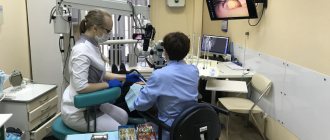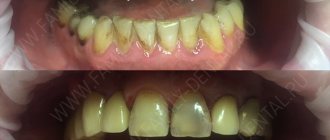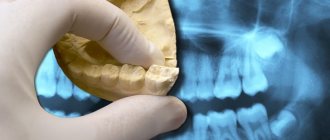Specialists who literally save or recreate snow-white teeth from scratch - dentists - have not only specializations, but also categories.
What category does a dentist start with at the beginning of his career and what category can a dentist receive after a few years and does this have any advantages? Let's try to figure it out.
Dentistry is an interesting science. True, the majority are ready to treat it with interest, while being as far as possible from the representatives of this very dentistry. Nevertheless, many young people with an interest in medicine consider dentistry as a future profession.
Receiving a higher category of dentist is a consequence of development in the profession, and first you need to become such a doctor. And it must be said that becoming a dentist is very, very difficult. This is a fairly long process and it requires a lot of effort and hard work, just like any medical profession. Getting into medical school is not easy, completing it successfully is even more difficult. But, still, the game is worth the candle and becoming a dentist is a very worthy choice. This is one of the highest paid specializations among doctors. Not to mention that this is a very interesting activity, although it is not suitable for everyone.
Dentist and dentist: what is the difference
Let's figure it out. What is the difference between a dentist and a dentist?
Dentist is a profession that requires secondary education. After graduating from medical school, the newly minted dentist specializes only in the treatment of hard dental tissues, namely dentin and enamel. Consequently, he will not be able to help a patient who comes with acute pain. His narrow specialization is based on the treatment of common caries.
A dentist is a medical specialist who has 6 years of university education and a year of internship behind him. He is endowed with a wide medical specialization and is able to perform various manipulations in the oral cavity: treatment and extraction of teeth, insertion of dental implants, bite straightening and much more.
The difference between a dentist and a dentist is obvious and quite significant. In this case, the question arises: why is a dentist needed if his powers are not as broad as those of a dentist?
In dental clinics there is no profession of “dentist” as such. There are quite a few highly specialized dentists of various specialties there. In addition, the dentist cannot be left as an on-duty specialist, since if necessary, he will not be able to provide the necessary assistance to the patient.
Having found out the difference between a dentist and a dentist, the advantage of the second specialist becomes obvious. That is why oral health should be entrusted to a doctor with a full university education.
How to prepare for category assignment
Let's look at how to get a category as a dentist. Preparation for certification occurs on both sides - both on the part of the doctor who wants to improve his qualifications, and on the part of the certification commission.
Stage 1: formation of the certification commission
It all starts with an order from government authorities to form a certification commission. Responsible persons are determined within the commission, some of whom are included in the coordinating committee, and some of whom are included in the group of experts. Since all doctors are certified, regardless of specialty, a group of experts is selected separately for each area of medical activity. This means that when certifying general practitioners, the commission will include experts in the field of therapy, and when certifying dentists, there will be dental specialists.
The commission must include invited leading medical and pharmaceutical workers, representatives of the government agency that ordered the formation of this commission, and a representative of the organization in which the certified medical worker works.
Stage 2: submission of documents
As soon as the commission is formed, it begins its work. Applicants send her their documents for evaluation, including:
- an application with a request to obtain admission to certification tests for assignment of a higher level of qualification - written to the chairman of the commission;
- certification sheet - must be certified by the head of the human resources department from the place of employment of the physician;
- report on the work done for the last year or three years - depends on the education of the medical worker;
- copy of the work document;
- a copy of the diploma/certificate of specialized medical education;
- a copy of the document confirming the change of surname, if the doctor received a diploma/certificate of education in his old surname.
This list must be accompanied by evidence of existing qualifications, if any.
The procedure for receiving and registering documents is also regulated by law and has an established procedure:
- on the day when the dentist provides a report and statement of intention to participate in the certification, the commission registers his documents in a special journal;
- then the correctness of filling out the report and drawing up the certification sheet is checked;
- if the commission finds errors in the preparation of documents, then it refuses in writing to accept the dentist’s application for certification and sends him a corresponding notification within a week;
- After receiving a refusal, the medical specialist can correct the mistakes made and re-send the application to the commission.
Please note that the dentist must submit documents to the commission no later than four months before the end of his old category. If a physician misses the deadline, he can undergo certification only after the current category expires. In this case, the specialist will no longer receive a bonus for skill until he passes certification.
Stage 3: review of the candidate's report
If there are no errors in the certification documents sent by the dentist, the commission begins to study the report in detail, and this is considered the beginning of certification. 30 days are allotted to study the report, after which the committee members are required to issue a final conclusion, which can be of two types - the accredited person is admitted to further tests or is not admitted.
If the accredited person is found eligible, a notification is sent to him indicating the date, time and location of the examination. The minimum time interval between the date of receipt of the notification by the dentist and the date of the examination is 30 calendar days.
Dentistry. Is it necessary?
The dentist deals exclusively with simple manipulations in the field of dental treatment. He does not have the right to provide more complex types of dental services.
Is this profession necessary then? The dentist performs the following list of works:
1. Examines the oral cavity and assesses the condition of the teeth.
2. Determines the cause of concern.
3. Treats gum diseases.
4. Engaged in filling small areas of damaged dental tissue.
5. Explains the rules of proper oral hygiene.
6. Consults on the choice of dental accessories, selects them based on the condition of the teeth.
7. If serious problems with the condition of the teeth are identified, refer the patient to an appointment with a competent specialist.
From the list of responsibilities, the need for the profession of a dentist is obvious, which makes it relevant.
However, this profession also has its downside: the lack of career prospects. Unfortunately, a dentist is not appointed to the position of head of the department.
Categories of dentists
To improve his specialization, after a certain amount of time, the dentist must upgrade his category.
The category depends on the length of work in the specialty, starting from the moment it was received. They are changed after completing advanced training courses.
There are 3 categories of dentists:
1. Doctor of the second category - awarded to a doctor whose work experience is more than 3 years, after receiving certification. The specialist must be well-versed both theoretically and in terms of practice.
2. Doctor of the first category - work experience of at least 7 years. A specialist must increase knowledge in his field, as well as study related disciplines.
3. The highest category implies at least 10 years of work experience in the specialty. This category corresponds to advanced theoretical and practical training.
A doctor’s category affects not only his professionalism, but also his salary.
The procedure for certification of dentists
Certification for the category of dentist also takes place in several stages.
Step 1. Passing the exam. After the commission has accepted the dentist’s report, it invites a specialist to undergo professional testing. The test is considered passed if the dentist answers at least 70% of the questions correctly.
Step 2. Interview. If the dentist passes the test, he is invited for an interview in order to find out the depth of knowledge in the area in which he works. The commission also checks how well the specialist understands the rules for cleaning and disinfecting the dental office. The interaction of the certified person with the commission takes place in the form of “question-answer”. After the doctor has answered all the questions, the commission members vote whether the person being certified is worthy of being assigned a new level of qualification or not. If the majority of votes are in favor, then the category is considered upgraded. If the votes are equally divided, then the chairman of the commission has the final say.
Step 3. Preparation of an order to assign a new category. When the dentist has passed all the tests and the commission has made a positive decision, the authorized government agency orders to assign a new level of qualification to the certified person. For this purpose, a separate order is created, which is signed and sent to the authorized government agencies and to the specialist’s place of employment.
Children's doctor
A pediatric dentist treats simple dental problems that arise in children. As a rule, this is caries that develops in young patients due to a sweet tooth.
However, there are often cases when a pediatric dentist is not able to provide qualified assistance to a child, and he has to refuse to treat the patient. There are several reasons for this:
• Problems in the treatment of children's teeth due to the differences that a child's jaw has compared to an adult's.
• Dental treatment may require special equipment and a different approach that the dentist does not have.
• Lack of drugs suitable for children.
• Inability to find an approach to a small patient.
If the pediatric dentist is unable to provide the necessary care to the child, you must make an appointment with the pediatric dentist.
In most cases, a pediatric dentist is able to help a small patient, since the oral cavity of children is more often susceptible to ordinary caries, which requires simple treatment. Also, do not forget to take your child for a preventive examination twice a year.
Dentist
A dentist has a wider range of powers in the field of dental treatment than a dentist. During 6 years of university training, in addition to studying “dental” topics, dentists master a number of other important disciplines that improve the training of a future specialist.
Upon completion of training, doctors are invited to choose one of several specializations in dentistry:
• Dentist-therapist.
• Periodontist.
• Orthodontist.
• Dental surgeon.
• Prosthetist.
• Pediatric dentist.
Dentist-therapist
The activities of this specialist are the same as those of a dentist, but the dentist-therapist is vested with a wider range of powers:
• Treatment of more acute dental problems.
• Filling of teeth in case of severe destruction.
• Treatment of inflammatory diseases of the gums, oral mucosa, tongue.
• Teeth whitening.
• Ultrasonic cleaning.
• Conducting preventive examinations, followed by recommendations.
Dental surgeon
Dental surgeons are competent in the following matters:
• Removal of diseased teeth that cannot be restored.
• Removal of healthy teeth that are interfering with the growth of adjacent units.
• Implantation, prosthetics.
• Correction of the dentition.
• Carrying out a number of operations, for example, incision of the gums, resection of tooth roots.
The difference between a dentist and a dentist is worth knowing for those who have decided to devote themselves to this profession.
A dentist, endowed with a minimum set of medical powers, still remains a sought-after specialist. It is especially in demand in small provincial towns or villages, where, in the absence of dentists, the dentist copes with the treatment of various diseases.
Other types of specialists
Therapist
The therapist, in addition to the functions performed by the dentist, can:
- treat deep caries, pulpitis, periodontal disease and other complex diseases;
- identifies and treats diseases of the oral mucosa;
- places various types of fillings in case of significant tooth damage;
- carries out teeth whitening and ultrasonic cleaning using professional equipment;
- sanitizes the oral cavity;
- if one or more teeth are missing, refer for consultation to a specialist, namely an orthopedic dentist;
- If the dentist identifies problems associated with malocclusion, and also identifies teeth that cannot be treated, he will refer the patient to an orthodontist or surgeon.
Surgeon
This is a narrow specialist who is distinguished by the following types of work:
- removal of healthy teeth if they interfere with the growth of neighboring ones;
- removal of wisdom teeth that are in the way or growing incorrectly;
- removal of teeth after a referral from a therapist, which must indicate that they cannot be restored;
- will be able to perform dental implantation and prosthetics.
Orthopedist
If you are missing at least 1 tooth, then you know why you need a consultation and visit to an orthopedist. The orthopedist performs the following functions:
- performs full or partial dental prosthetics;
- selects the type of prosthetics, for example, crowns, bridges or implants;
- restores a beautiful smile.
It is worth remembering that an orthopedic dentist is visited only after sanitation of the oral cavity. First, an examination should be carried out by a dentist or dentist, and after that you can consult an orthopedist.
Orthodontist
This doctor is responsible for the correct bite. If a person has an incorrect bite, it is not only a cosmetic defect. This problem can lead to diseases of the gastrointestinal tract, gums, bone tissue of teeth, and also causes headaches.
What kind of work does an orthodontist do?
- straightens teeth, making your smile beautiful;
- removes gaps between teeth, as well as diastema, better known as a “gap” between the front teeth of the upper row;
- Ensures that milk and permanent units grow evenly. If teeth grow abnormally, the orthodontist corrects it;
- gives recommendations and advice related to bite;
- exercises control over the correct formation of the jaw in children.
Stages of an orthodontist’s work:
- when aligning or correcting the dentition, draws up a treatment plan. Then he makes impressions of the teeth. Next, all materials, along with x-rays, are sent to a dental laboratory for the production of the necessary structure;
- After receiving a design that corrects certain problems, the orthodontist installs it. And also gives recommendations on its care;
- throughout the entire treatment, which lasts while braces, retainers and other structures are installed, the orthodontist observes the patient;
- Patients with braces and other structures go to the orthodontist for a long time. After all, dental correction is a rather lengthy process.
Who are dentists?
In the field of dentistry, there is another concept - dentist. How is he different from a dentist and a dentist?
Essentially, a dentist is a dentist (corresponding to a medical assistant). This concept applies to dental professionals working abroad. It has not taken root in our country. And many people have heard the word “dentist” only in foreign films; in everyday life it is “unheard of.”
Since a dentist is the same as a dentist, dentists are therefore mid-level doctors, that is, without a full higher education and with a limited range of services provided.
So, having figured out who a dentist and a dentist are and realizing that these are specialists in the same medical specialization, but with different tasks, you can easily contact a dental clinic for help if the need arises.
It is worth considering that there is also a difference between a dentist and a dentist in the prices for services. Dentists' prices will be significantly higher than the price for dentists' work.
Now we know who a dentist is. We also looked at what it does and its relevance, so you can safely contact any clinic, having the right concepts about dentists and dentists.
Additional payment per category
One of the reasons why dentists strive to regularly improve their skills is generous financial incentives. The legislation establishes additional payments for qualifying categories of dentists - 15, 20 and 30% for the second, first and highest categories, respectively.
Not only employees working directly with patients, but also heads of medical institutions can apply for the bonus. Since the amount of the bonus for the category is set as a percentage, the higher the specialist’s salary, the greater the amount of bonus he will receive.
We examined in detail what categories of dentists there are and how certification is carried out. Despite the clarity and simplicity of the procedure, examination tests almost always cause stress and anxiety among doctors. The “Academy of Professional Standards” will help dentists prepare for testing to improve their category in order to feel confident before the certification commission. We will also help you fill out the work report correctly, point out errors in a timely manner and explain how to correct them.











